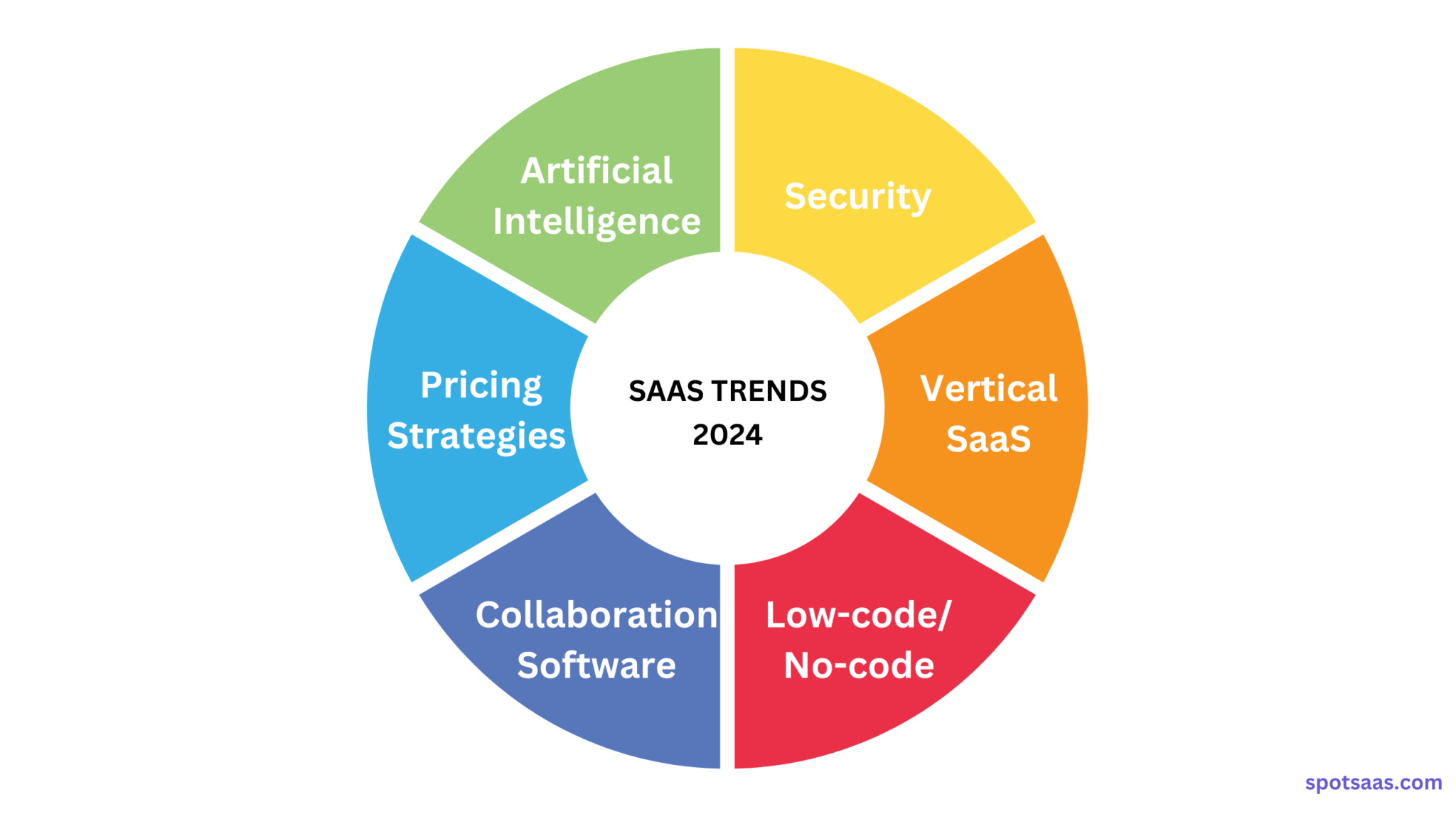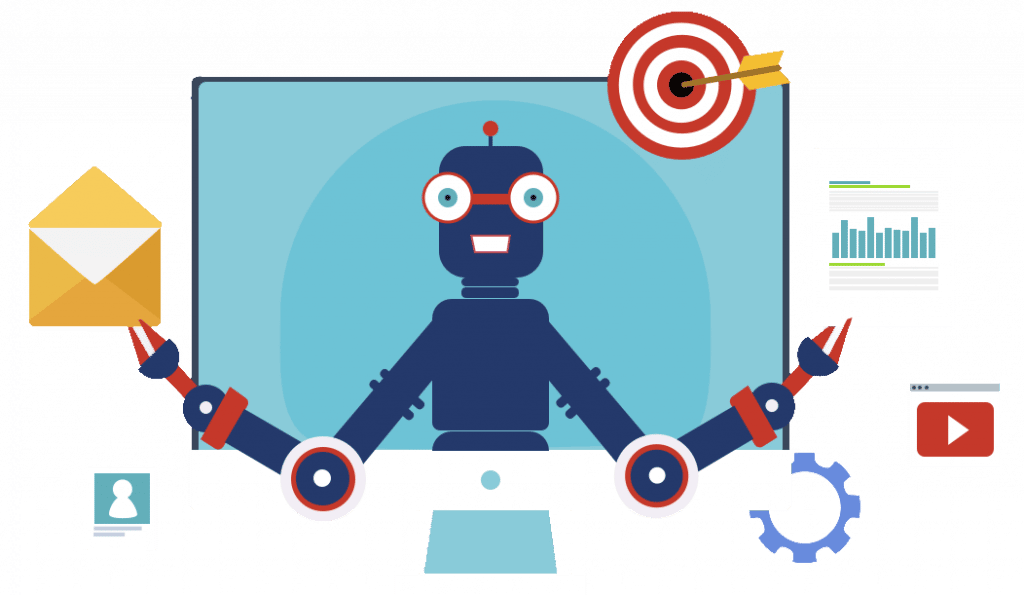
Are you tired of feeling like a one-armed juggler trying to manage both marketing automation and content marketing?
Well, fear not my fellow marketer!
In this blog, we’ll show you how to bring these two strategies together like a perfectly orchestrated symphony. Think of it as peanut butter and jelly, Batman and Robin, or even Bert and Ernie – two great things that are even better when combined.
So, let’s dive in and learn how to use marketing automation and content marketing hand in hand!
What Is Marketing Automation
Automation of repetitive marketing processes and workflows, including email campaigns, social media posts, lead generation, and customer segmentation, is known as marketing automation. Without the need for manual involvement, marketers can use marketing automation software to develop and plan targeted communications that will be distributed to particular audiences at particular times.
Here are a few examples of marketing automation in action for effective execution of marketing strategy:
- Email campaigns: A marketing automation tool can be used to create and send targeted email campaigns to specific customer segments based on their behavior or preferences.
- Lead scoring: Marketing automation software can help marketers identify the most promising leads based on their behavior and engagement with the brand.
- Social media scheduling: With marketing automation tools, marketers can schedule and publish social media posts in advance, saving time and ensuring a consistent posting schedule.
- Personalized content recommendations: Marketing automation tools can analyze customer behavior and provide personalized content recommendations to customers.
Want to learn more about Marketing Automation? Here are two detailed blogs by team SpotSaaS:
Ultimate guide to marketing automation software
Top 5 Marketing Automation Tool – Learn More
What Is Content Marketing
In order to draw in and keep the attention of a particular audience and ultimately encourage profitable customer action, content marketing entails producing and disseminating valuable, pertinent, and consistent material. It aims to educate or entertain potential customers in order to increase brand recognition, foster client loyalty, and sway purchasing decisions.
Blog entries, social media updates, videos, podcasts, infographics, and whitepapers are some examples of marketing content.
For instance, a cookware company might produce recipe blog entries or how-to videos to highlight its items and advise viewers on proper cooking methods. Publishing educational blog articles or eBooks on personal finance can help a financial services company become recognized as an authority in the field and gain the trust of potential clients.
Marketing Automation Tools For Content Marketing
There are several marketing automation tools that can be used for marketing. Here are a few popular ones:
- HubSpot: HubSpot is a comprehensive inbound marketing and sales platform that includes content creation, email marketing, social media management, lead generation, and analytics. HubSpot’s automation features can help create workflows for lead nurturing, score leads based on behavior, and track content performance.
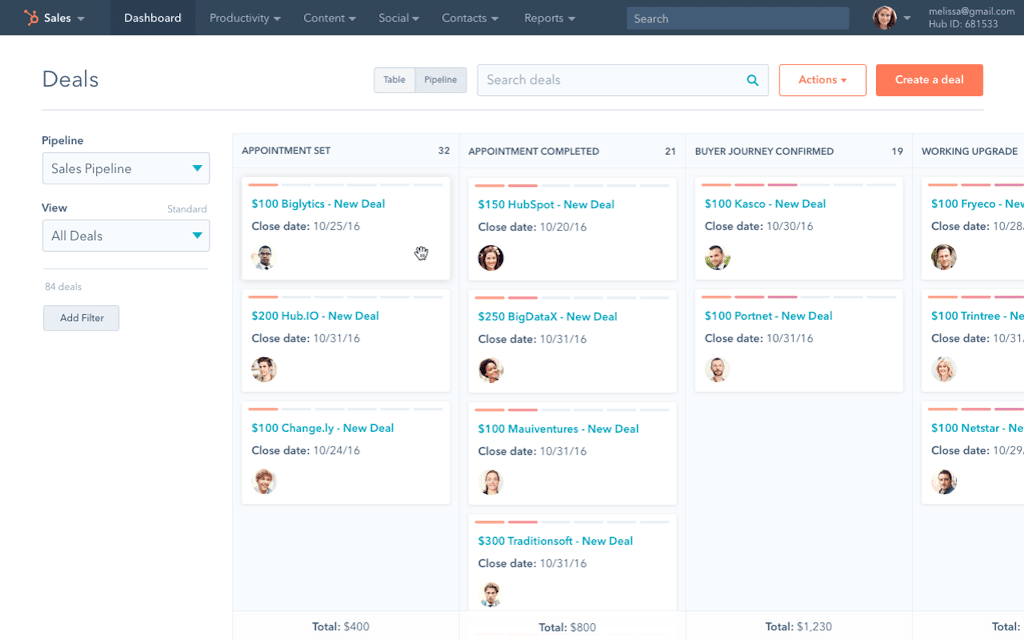
- Marketo: Marketo is a marketing automation platform that provides features such as lead management, email marketing, social media marketing, analytics, and campaign management. Marketo’s automation capabilities allow marketers to personalize content and communications based on user behavior and interests.
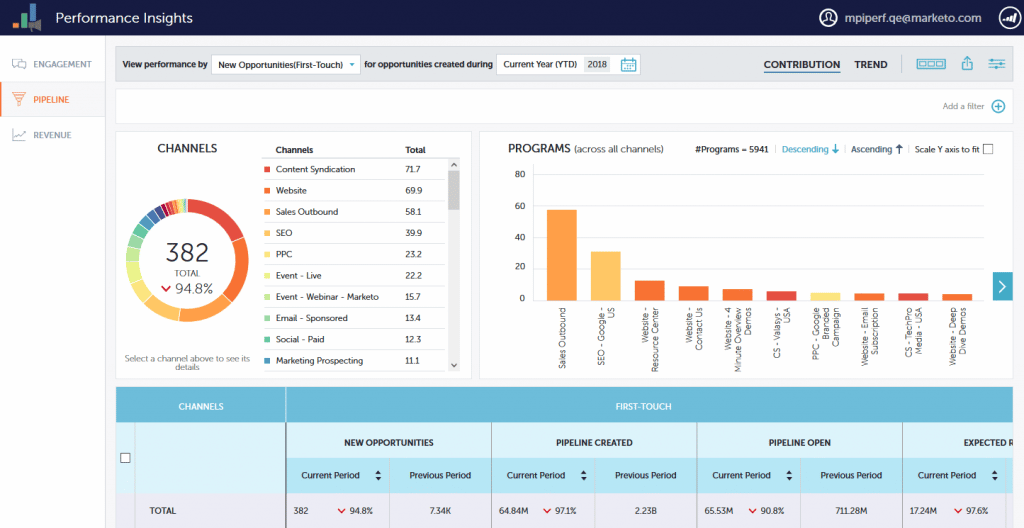
- Pardot: Pardot is a B2B marketing automation platform that offers email marketing, lead generation, and lead management features. Pardot’s automation capabilities include email nurturing, lead scoring, and automated drip campaigns.
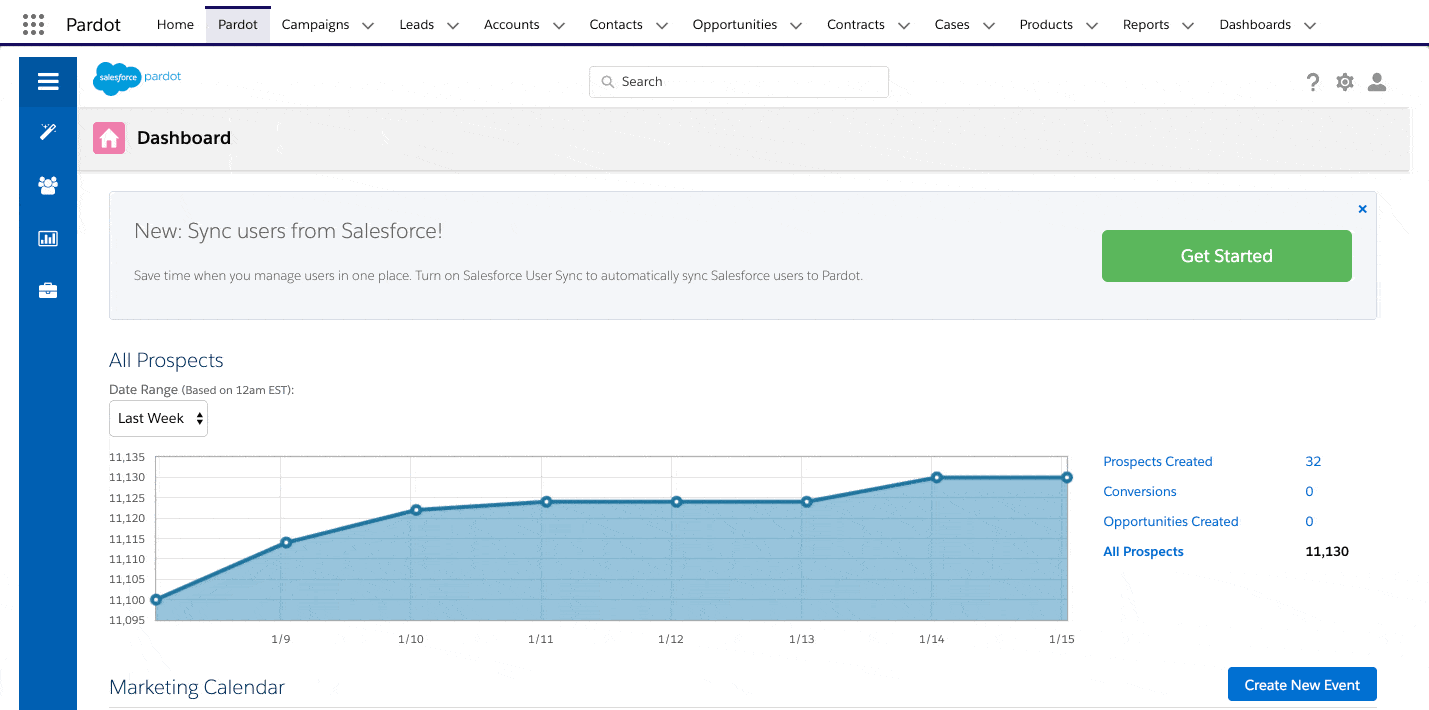
- ActiveCampaign: ActiveCampaign is a marketing automation and CRM platform that offers email marketing, marketing automation, and CRM features. ActiveCampaign’s automation capabilities allow marketers to create sophisticated automation workflows and trigger-based email campaigns.
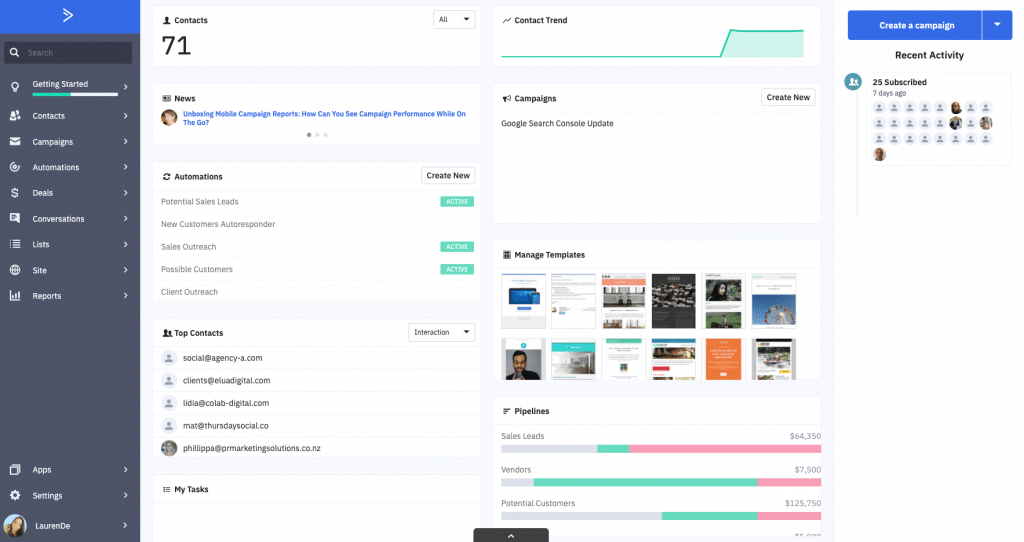
- Mailchimp: Mailchimp is an email marketing platform that offers automation features to help create and manage automated email campaigns. Mailchimp’s automation capabilities allow marketers to segment audiences, send personalized messages, and track email performance.
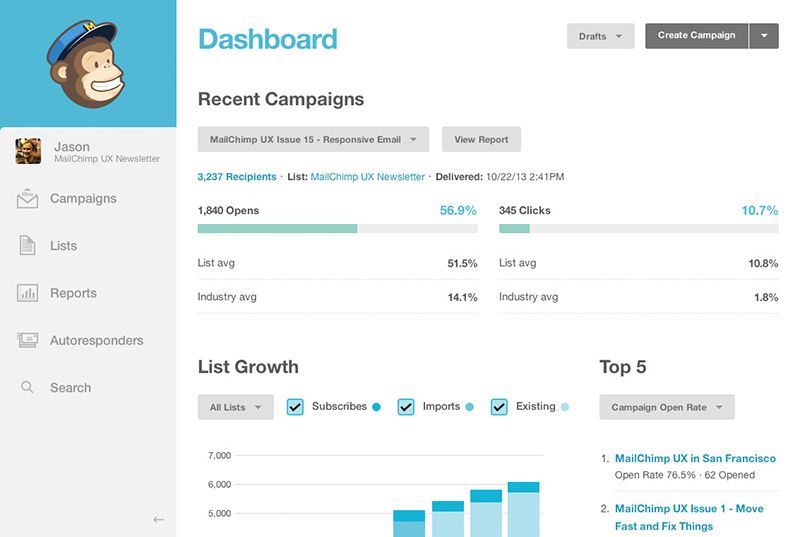
Trending AI Tools For Content Marketing
Artificial intelligence (AI) is becoming increasingly important in content marketing, as it can help automate tasks, personalize content, and provide data-driven insights.
Here are a few trending AI tools for the same:
- Acrolinx: Acrolinx is an AI-powered content optimization tool that analyzes content for clarity, consistency, and tone of voice.
- Curata: Curata is a content curation platform that uses AI to suggest relevant content for curation and distribution. The tool can also help automate the content creation process, from ideation to publishing.
- MarketMuse: MarketMuse is an AI-driven content planning and optimization tool that analyzes content and provides recommendations for optimization.
- Atomic Reach: Atomic Reach is an AI-powered content optimization tool that provides insights and recommendations for improving the effectiveness of content.
- Persado: Persado can help improve the effectiveness of email subject lines, landing pages, and other types of content.
Ways in which content marketing and marketing automation go together
Marketing automation is an excellent technique for content marketing since it enables the creation of more individualized, focused, and successful content campaigns.
A few methods that marketing automation can support content marketing are listed below:
- Personalization: Based on user behavior, interests, or demographics, marketing automation technologies can help tailor content. For instance, a marketer may send a follow-up email with similar material if a user downloads a white paper or newsletter on a certain subject depending on the user’s interest.
- Lead nurturing: Marketing automation can assist with lead nurturing through social media, targeted email campaigns, and other channels. Marketers can keep consumers interested and advance them along the sales funnel by offering them pertinent and useful content.
- Automation of workflows: Marketing automation may automate and streamline the creation, publication, and distribution of information. For instance, a marketer can configure a pipeline such that whenever a new blog post is published, an email or social media post is immediately sent.
- Analytics: Data on user activity and engagement with content can be obtained from marketing automation technologies. This information can be used to revise content strategy for marketing campaigns and increase its efficiency for better ROI. Marketers can utilize this data to spot patterns and trends and to update their choices regarding the production and distribution of content.
- Lead scoring: Based on a lead’s activity and engagement with the material, marketing automation solutions can score the lead. This can help prioritize leads and identify those who are most likely to convert.
- A/B testing: To discover which version of a piece of content, such as a headline, a call to action, or an image, is more effective, marketing automation can assist with A/B testing.
In general, marketing automation can help content marketing efforts run more smoothly and effectively by delivering more personalized and targeted content, automating workflows, and offering data-driven insights. Marketers may develop content that connects with their audience and advances them along the sales funnel by utilizing marketing automation solutions.
Conclusion
In conclusion, marketing automation and content marketing are the ultimate power couple in the world of marketing.
By combining the creative and strategic aspects of content marketing with the efficiency and personalization of marketing automation, you can create content that resonates with your audience, nurtures leads, and drives conversions.
So, don’t be afraid to let these two technologies hold hands and take your marketing efforts to the next level.
After all, as the saying goes, two heads are better than one, and in the case of marketing automation and content marketing, two tools are definitely better than one!
Read More
NFTs (Non-fungible token) Everything You Need To Know
Top Content Marketing Trends Every Agency Should Be Leveraging This Year
Frequently Asked Questions (FAQs)
What are leading marketing automation tool for content marketing?
Some leading marketing automation tool for effective content marketing are:
Hubspot
Marketo
Pardot
ActiveCampaign
Mailchimp
What are the major benefits of marketing automation tools?
Among many, the major benefits of using marketing automation tools are:
1- Saves resources
2- Optimised outcomes
3- Reduction in error rates
4- Personalised marketing strategy
What is content marketing?
Content marketing is a marketing strategy that involves creating and sharing valuable, relevant, and consistent content to attract and retain a clearly defined audience, with the goal of ultimately driving profitable customer action.
Content marketing trends in 2023?
6 leading trends in content marketing are:
Interactive content
User-generated content
Video content
Personalization
Voice search optimization
Augmented reality (AR)

